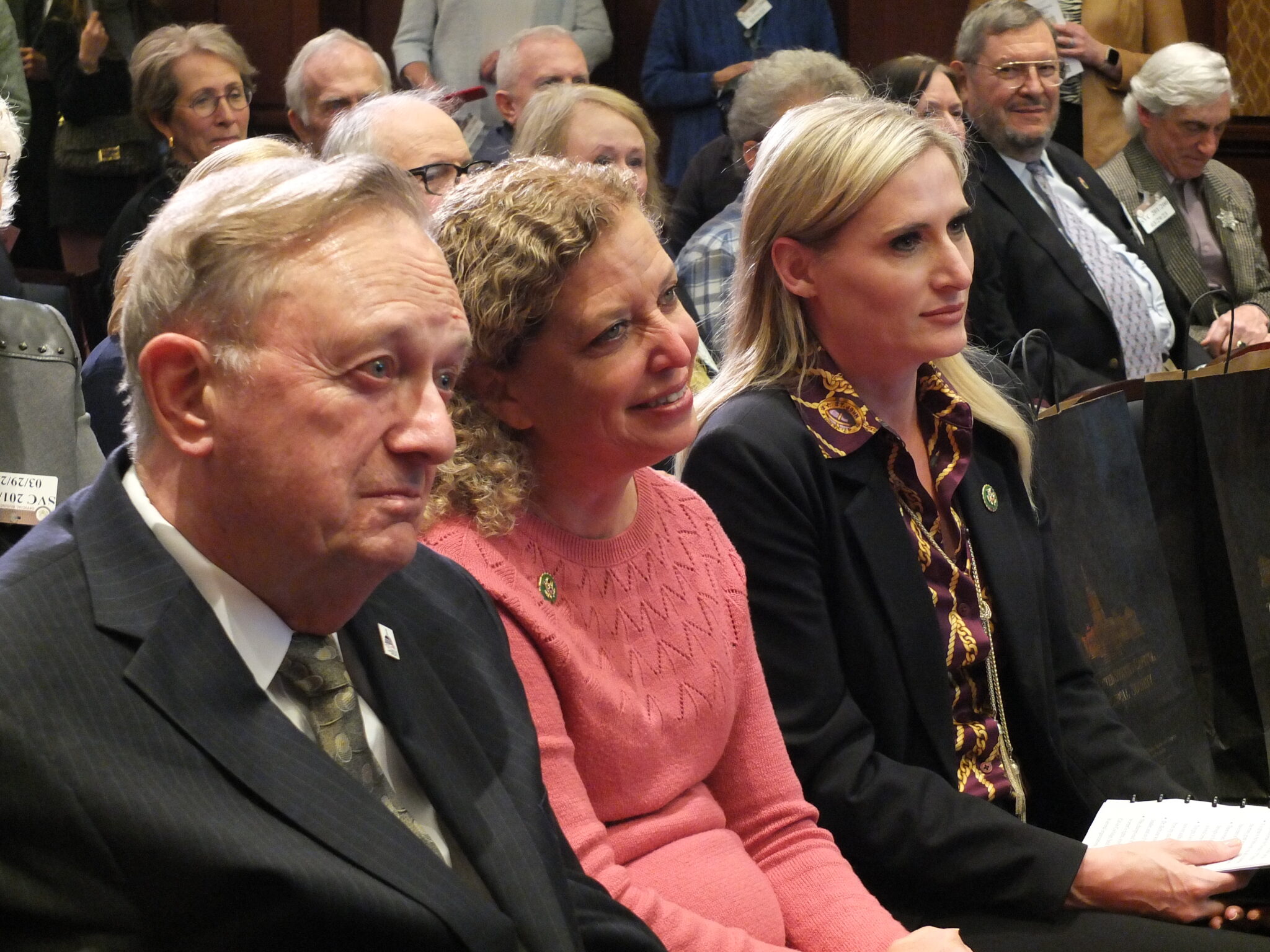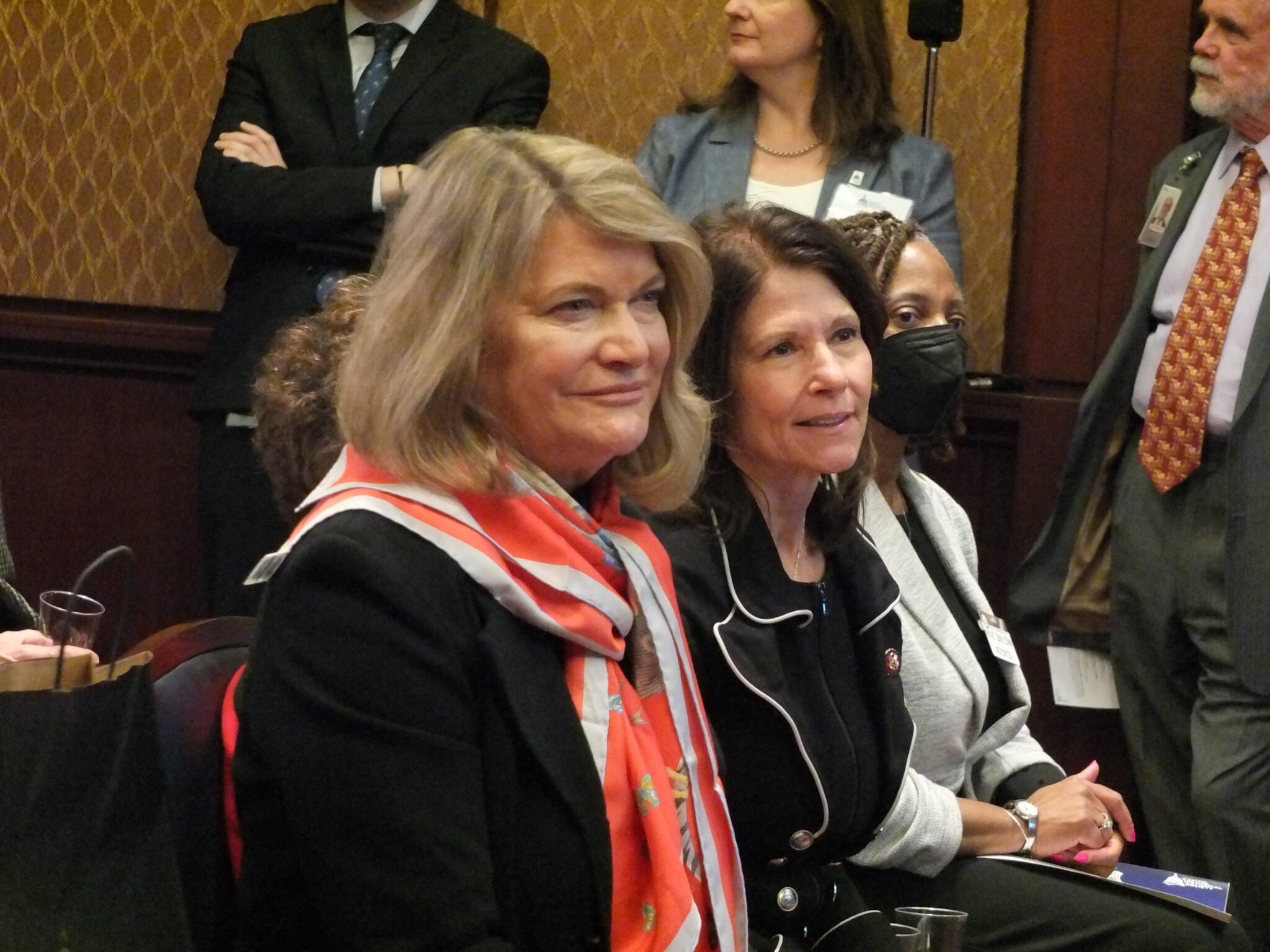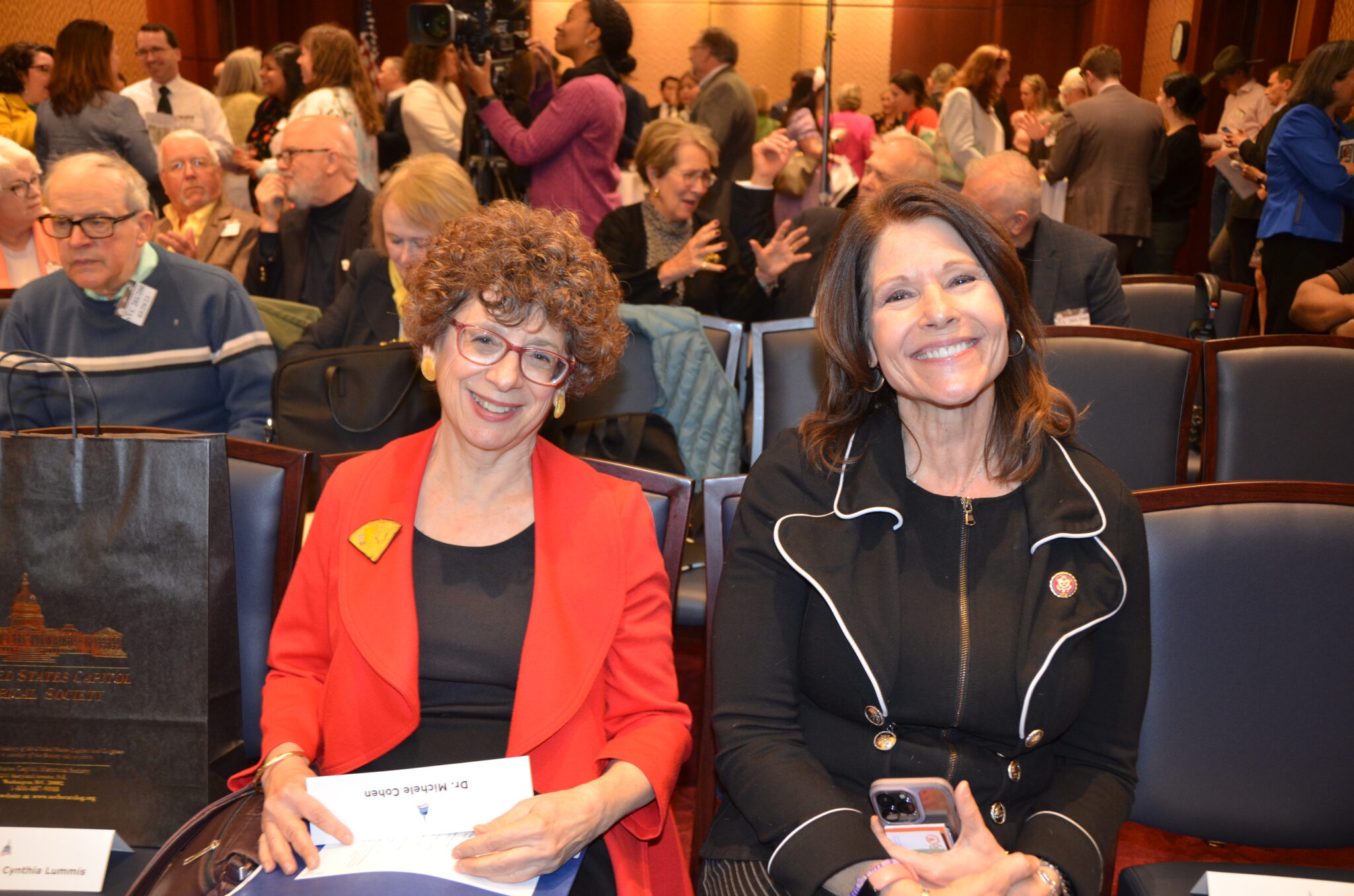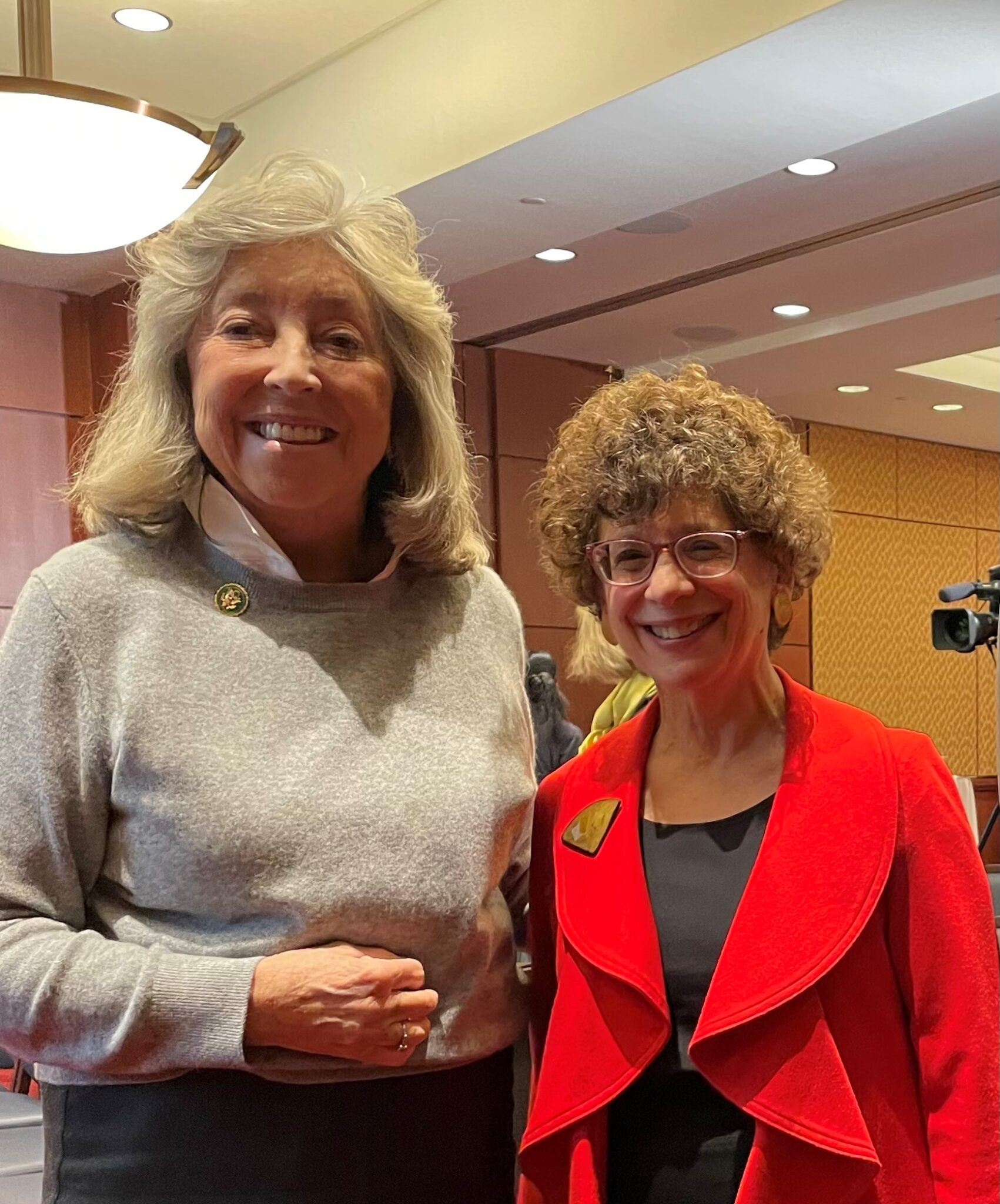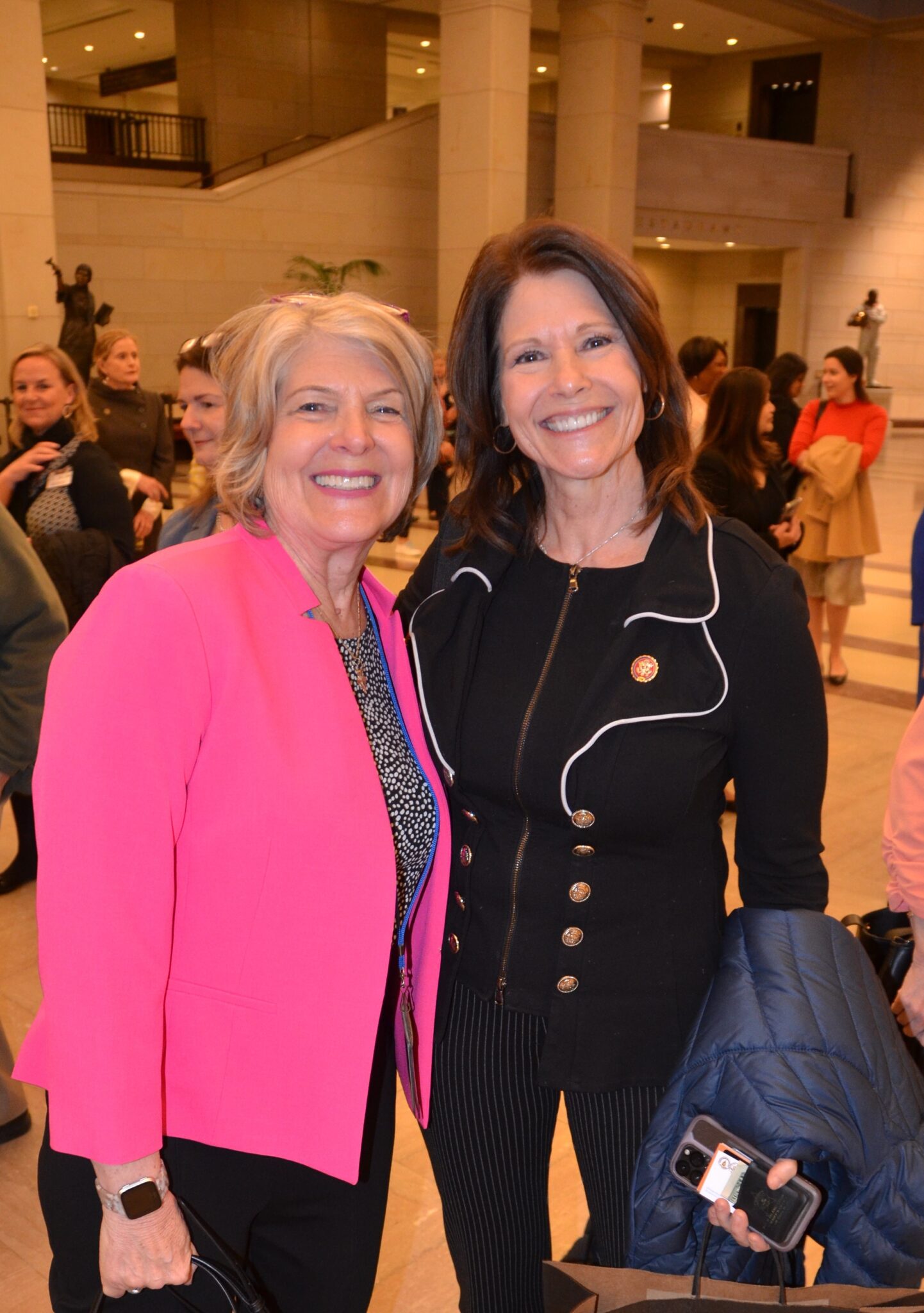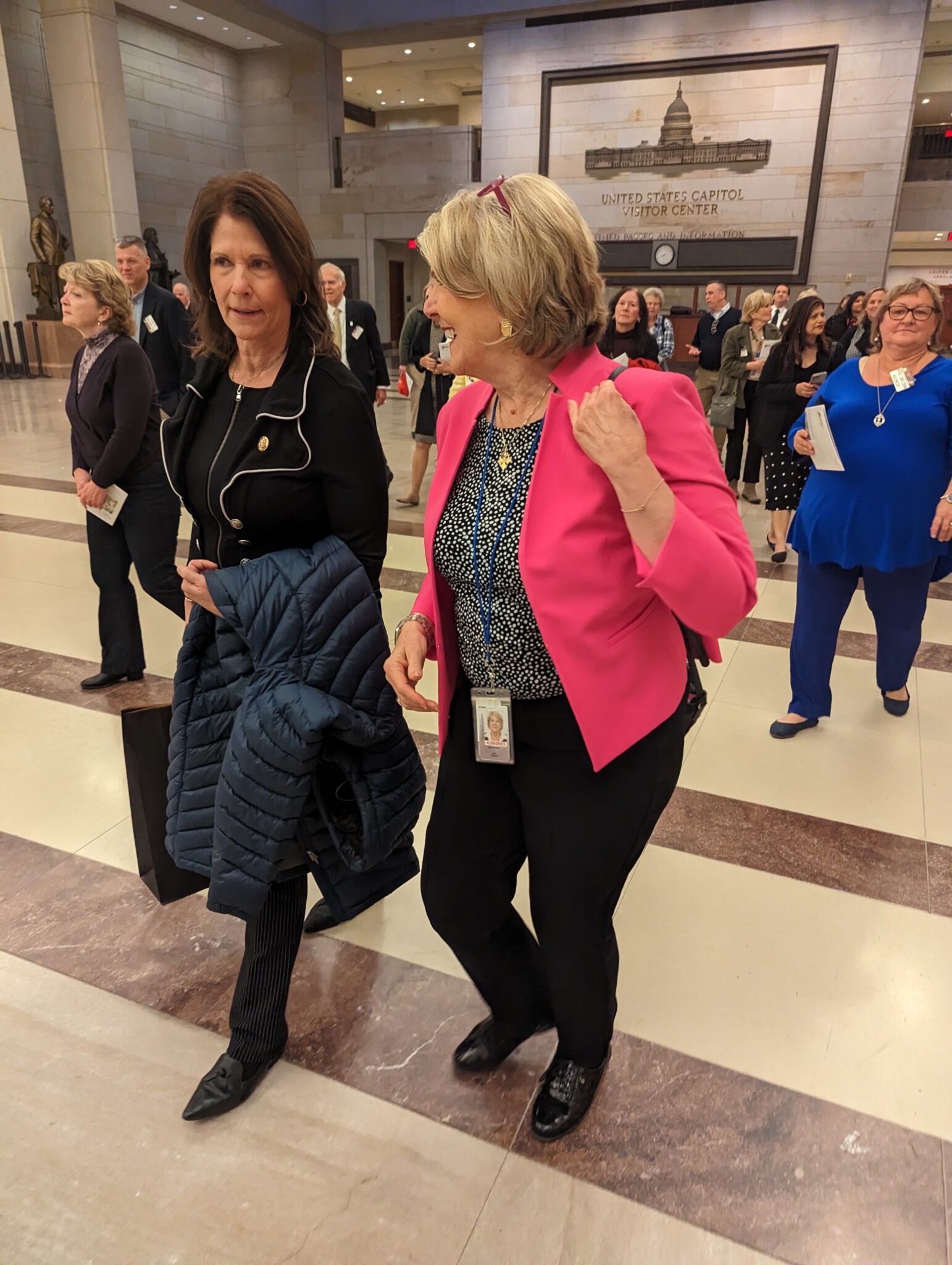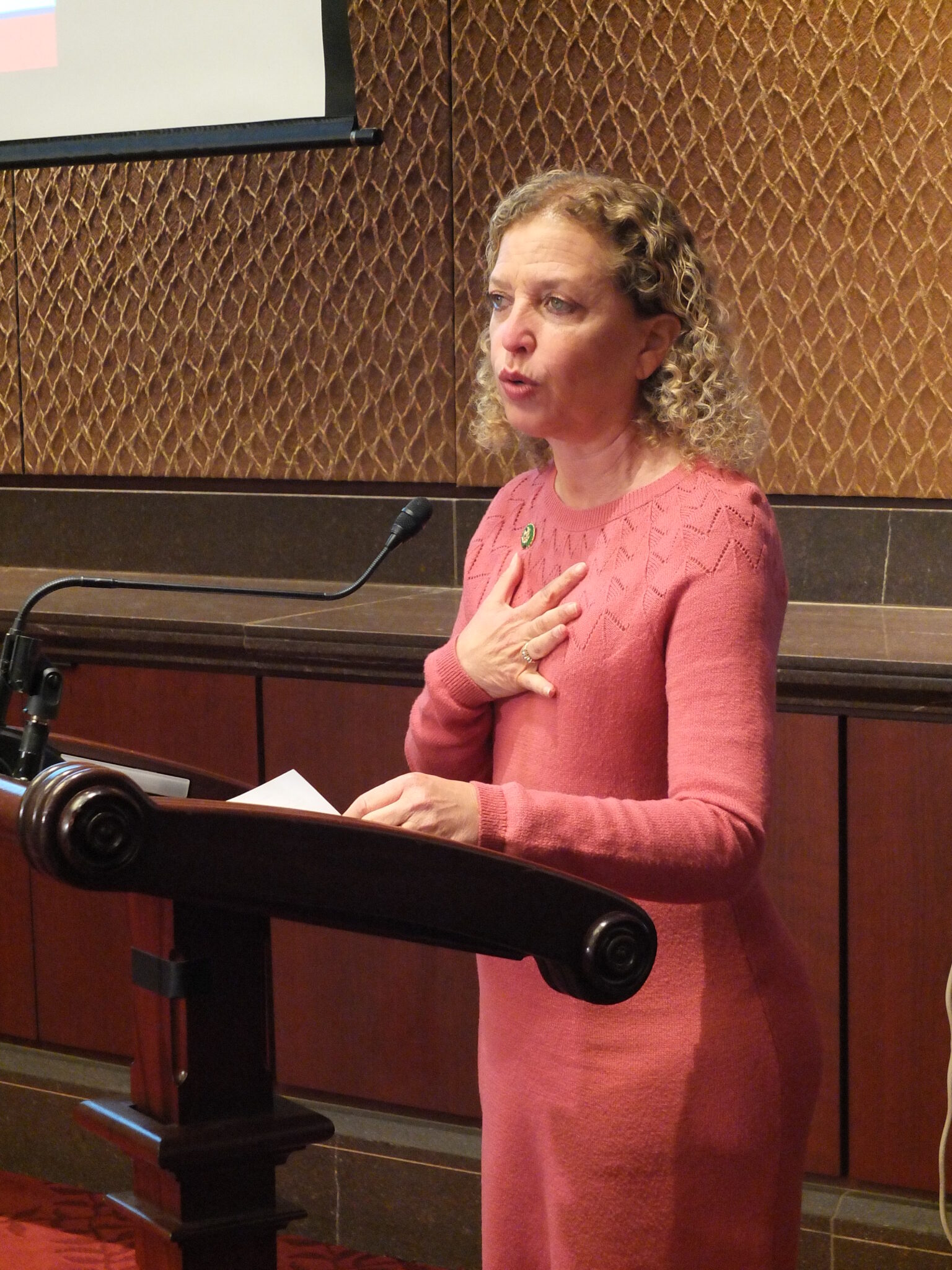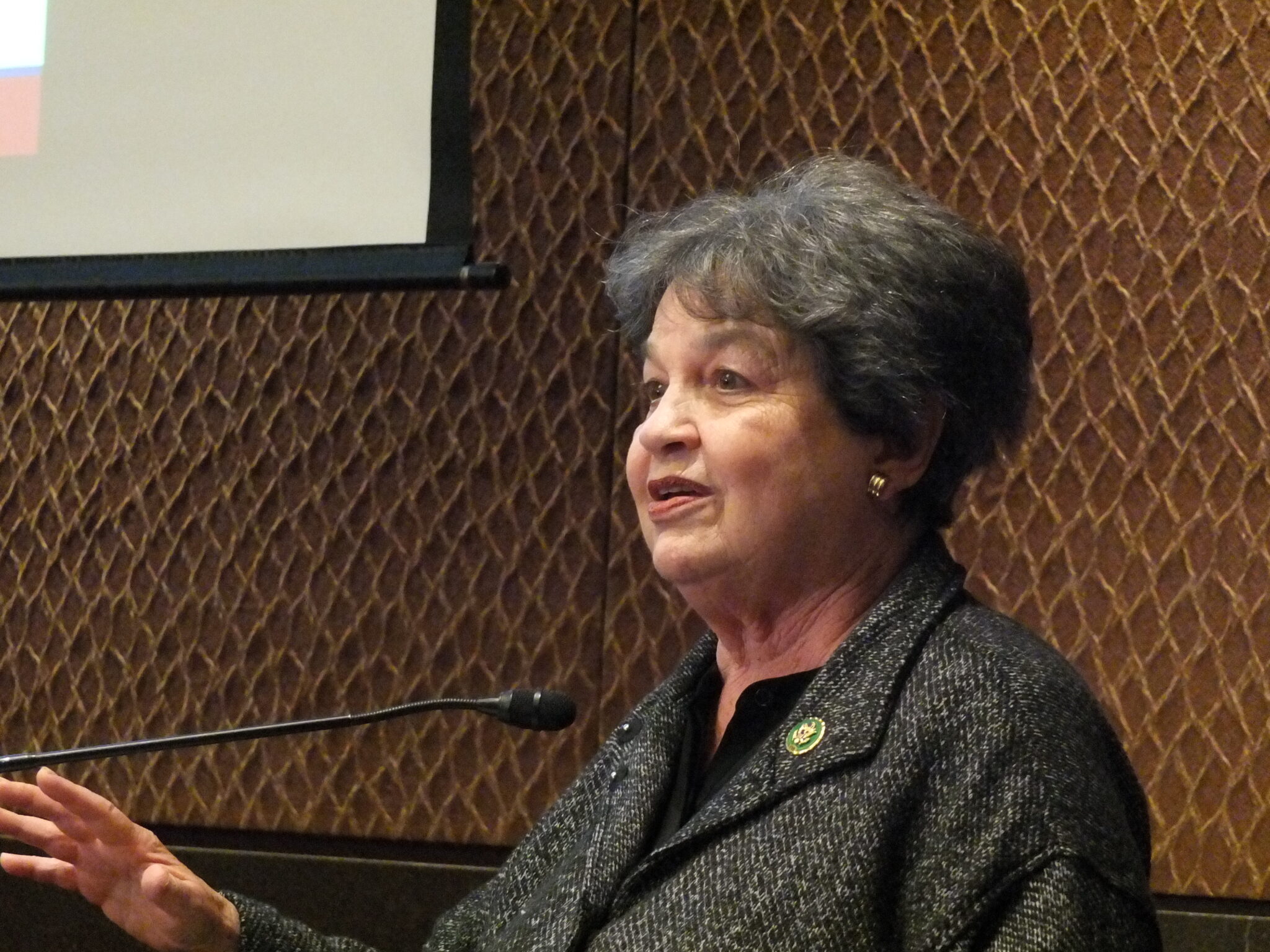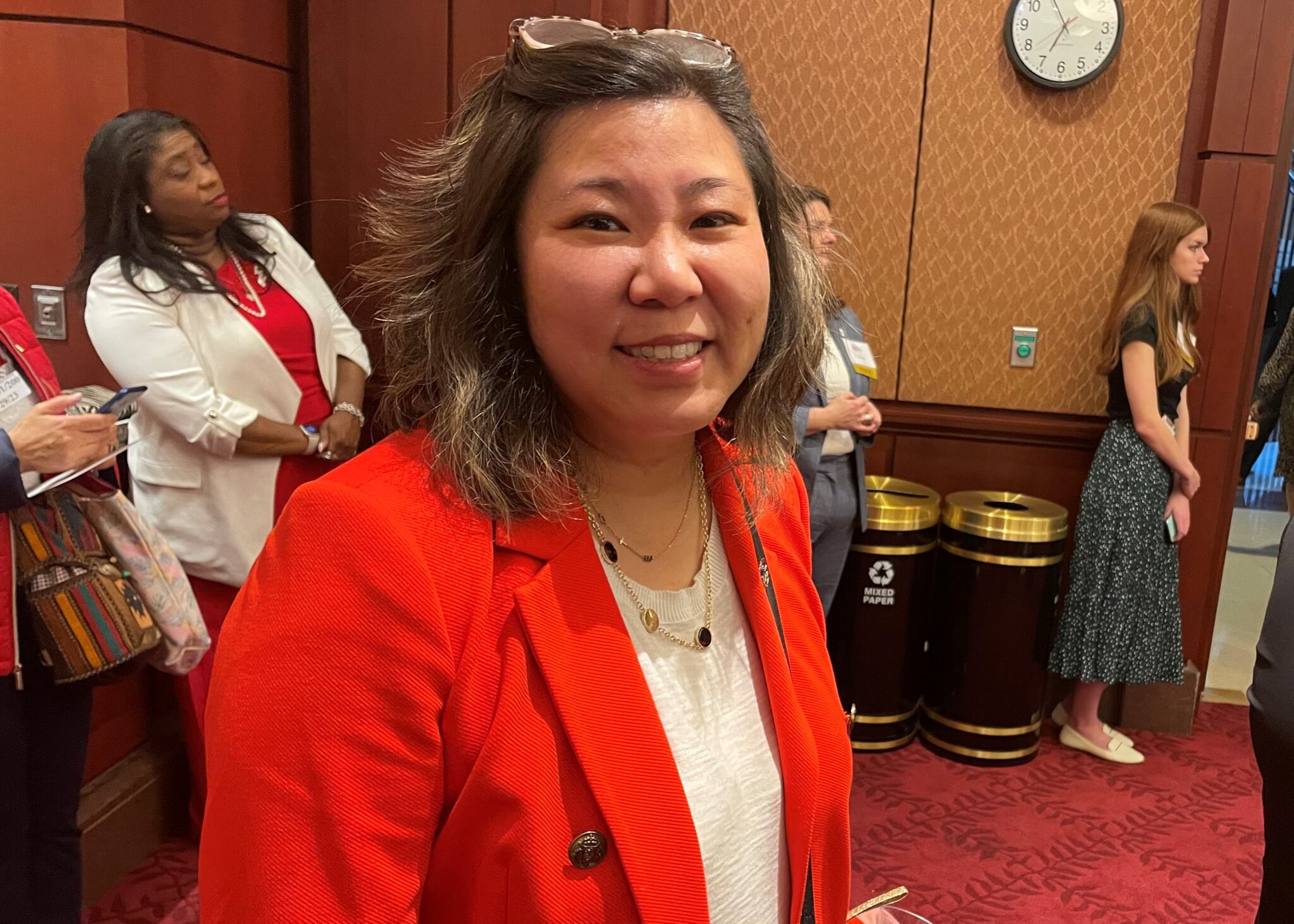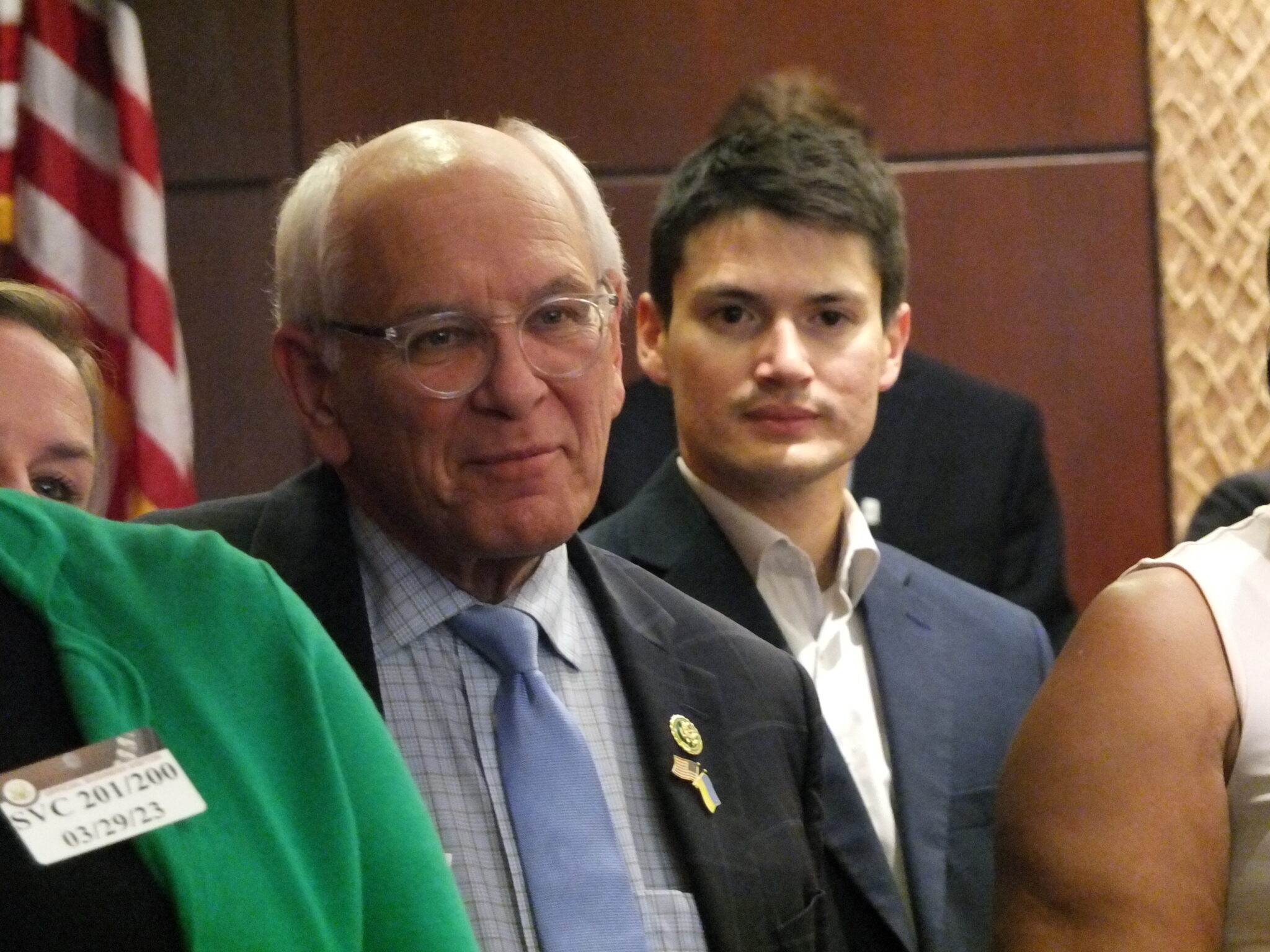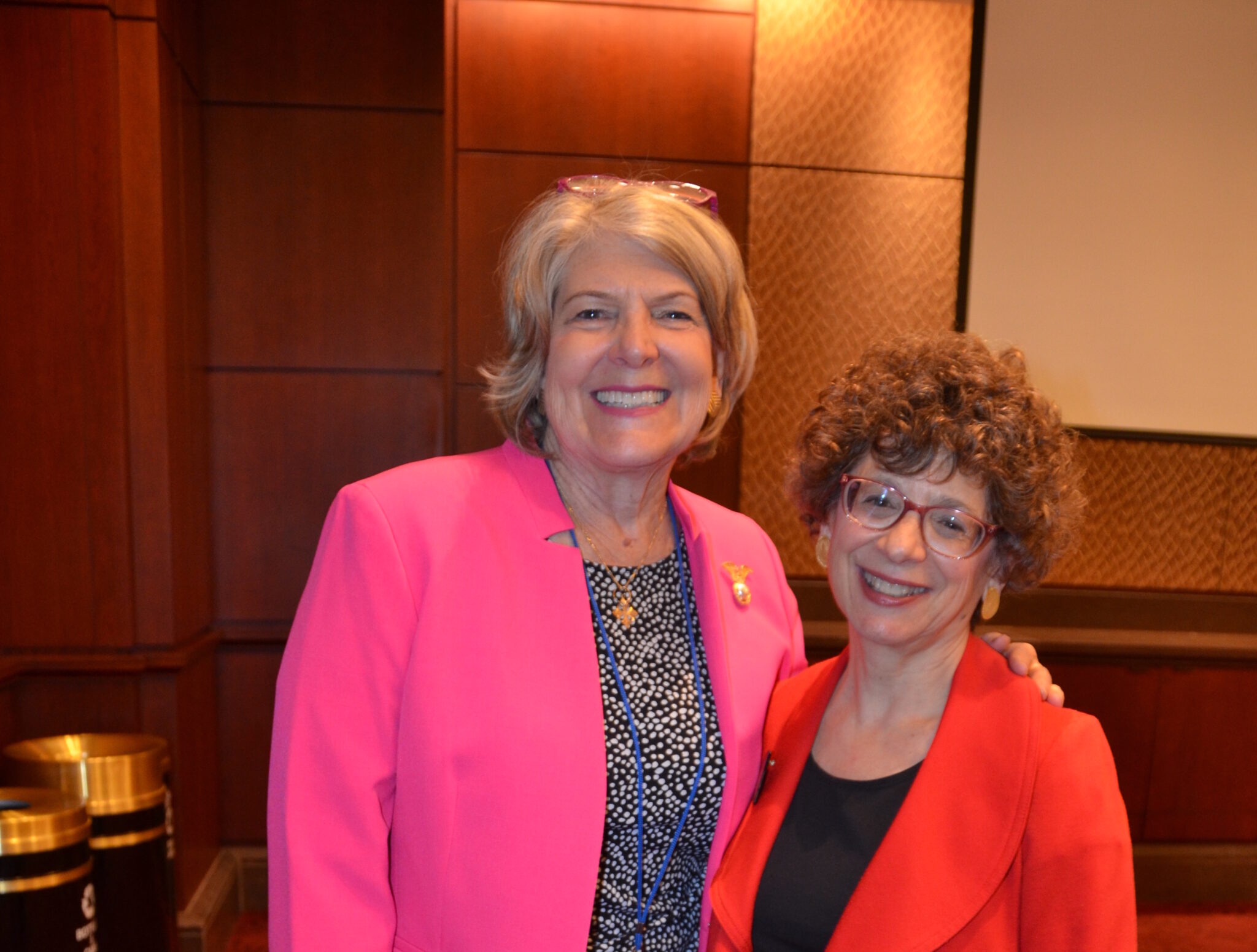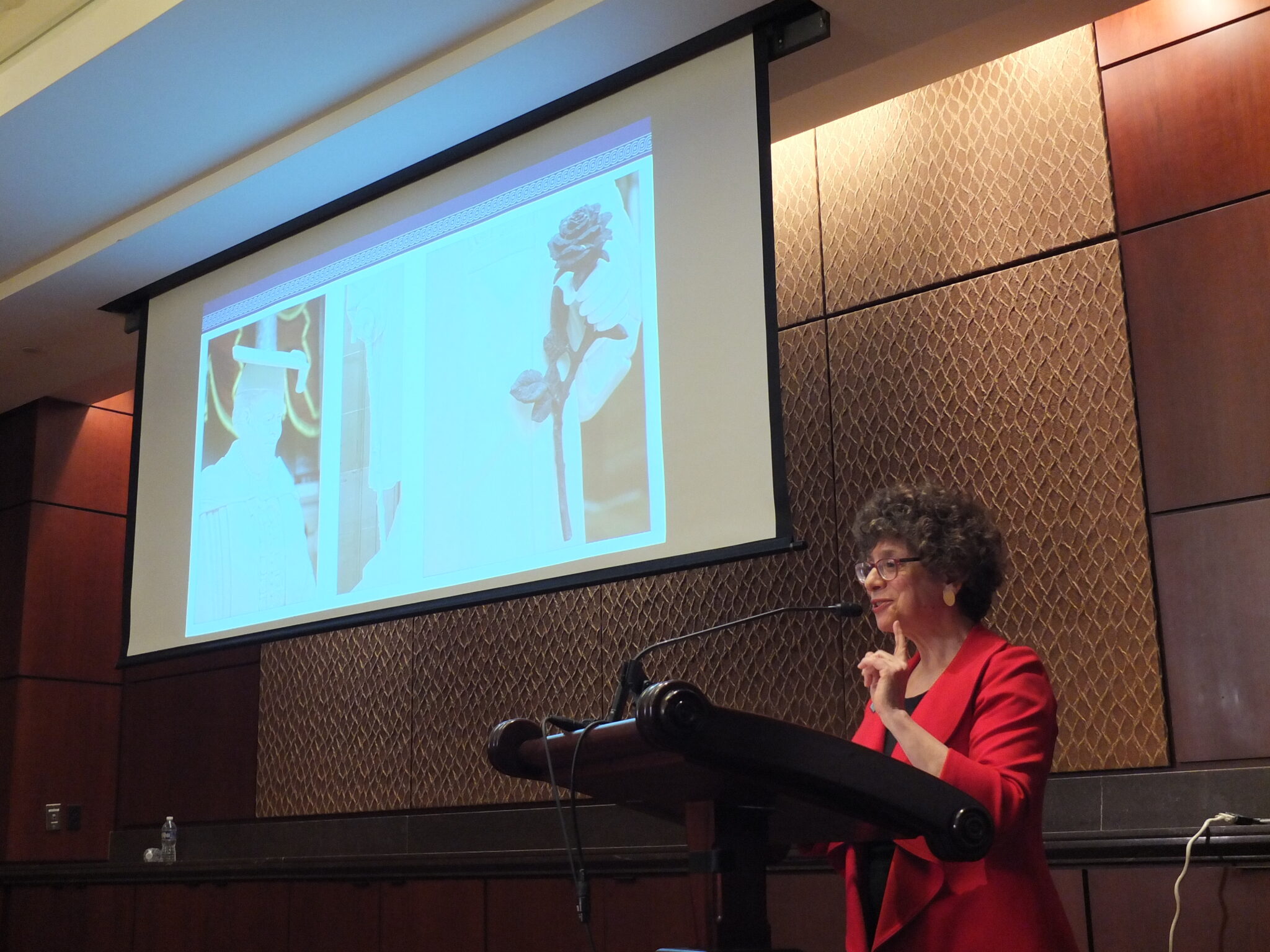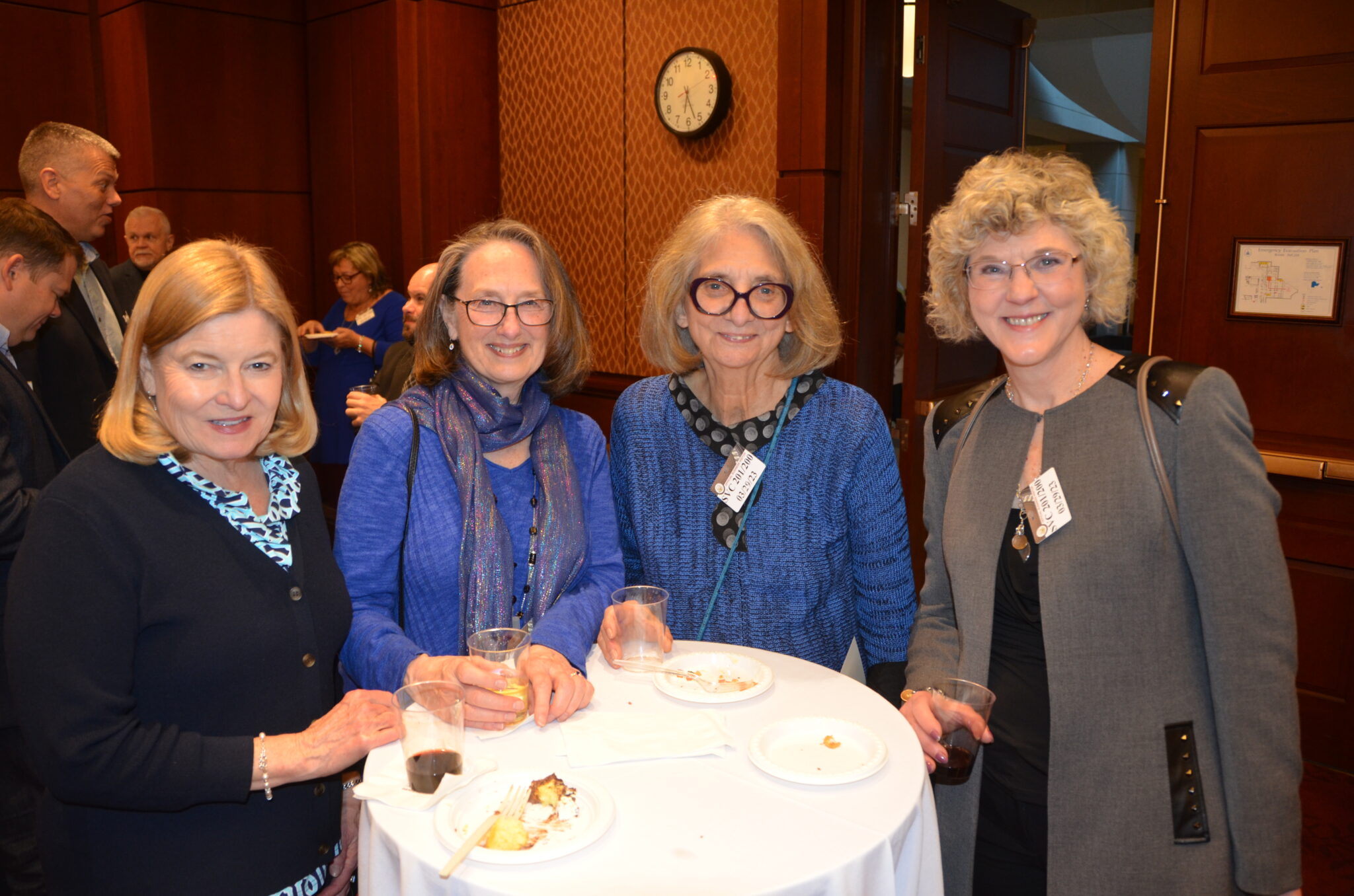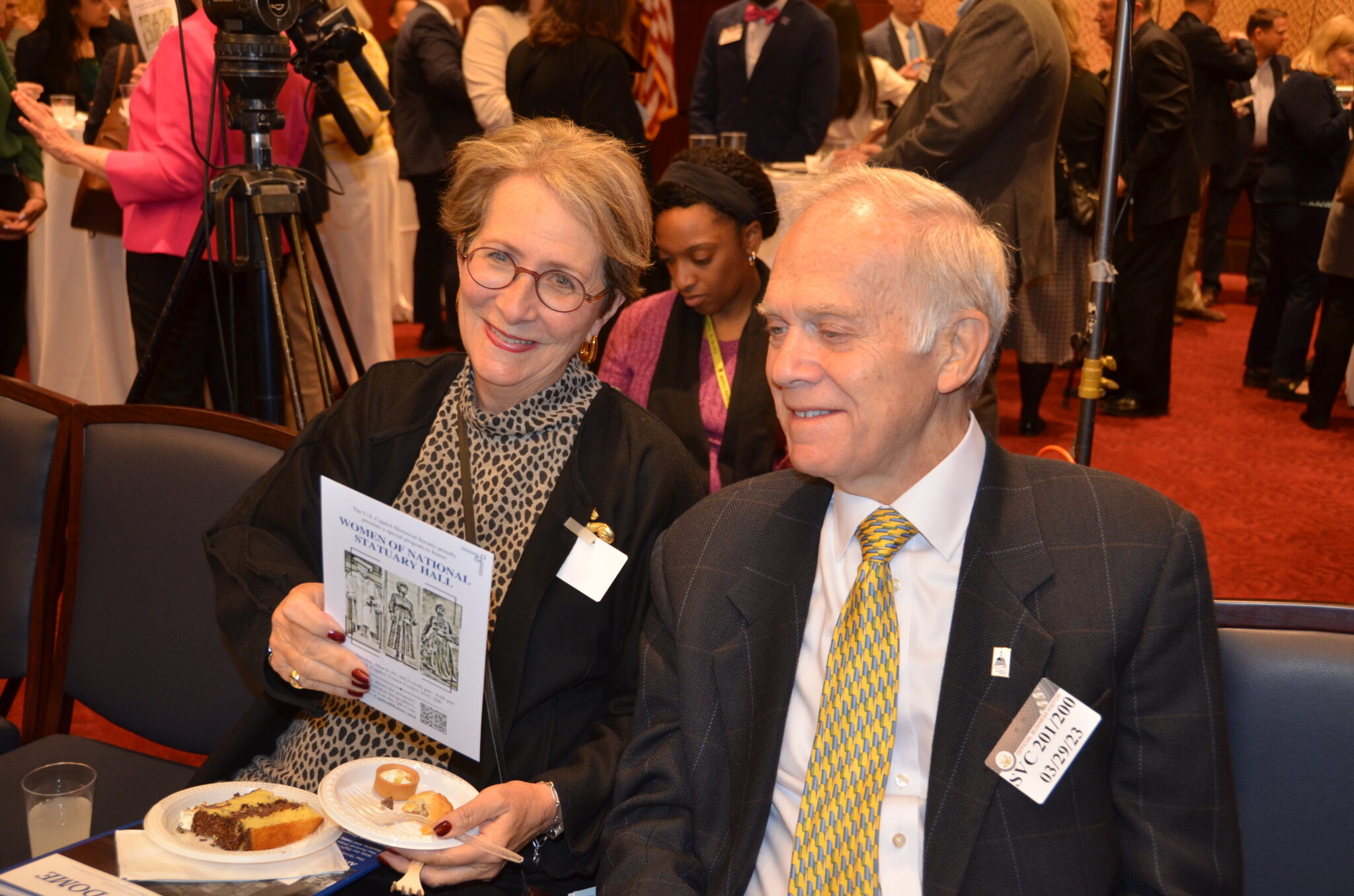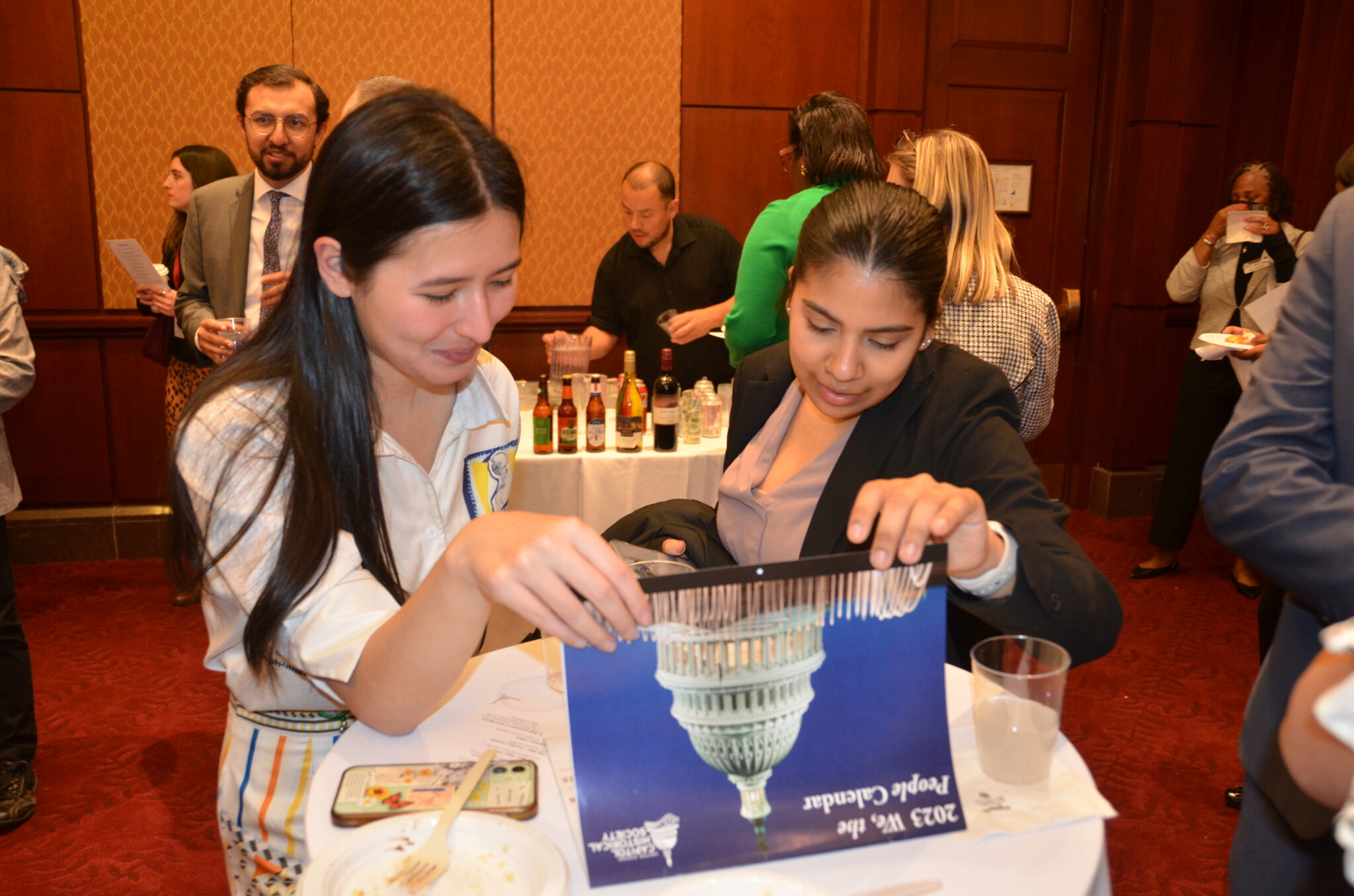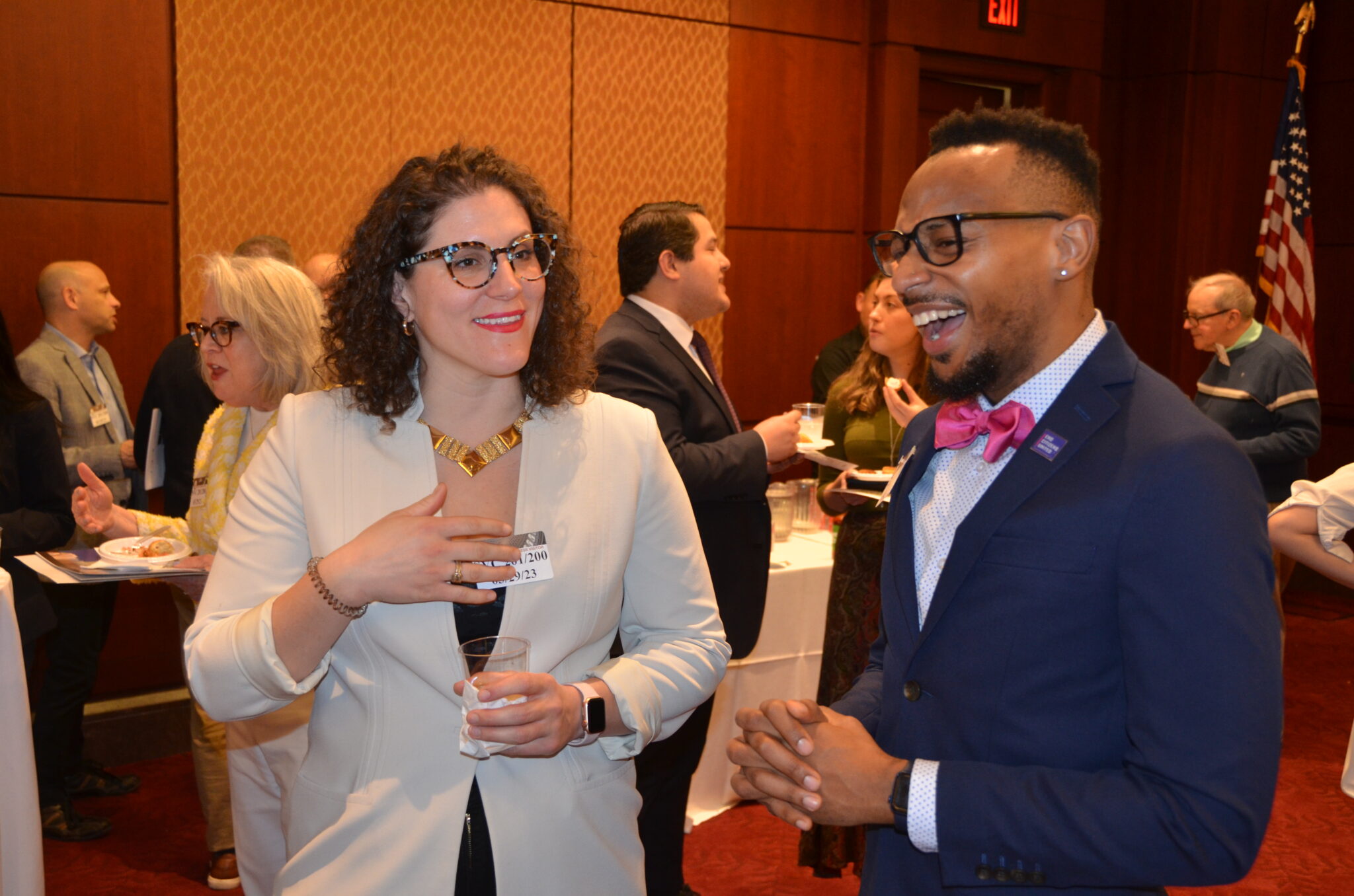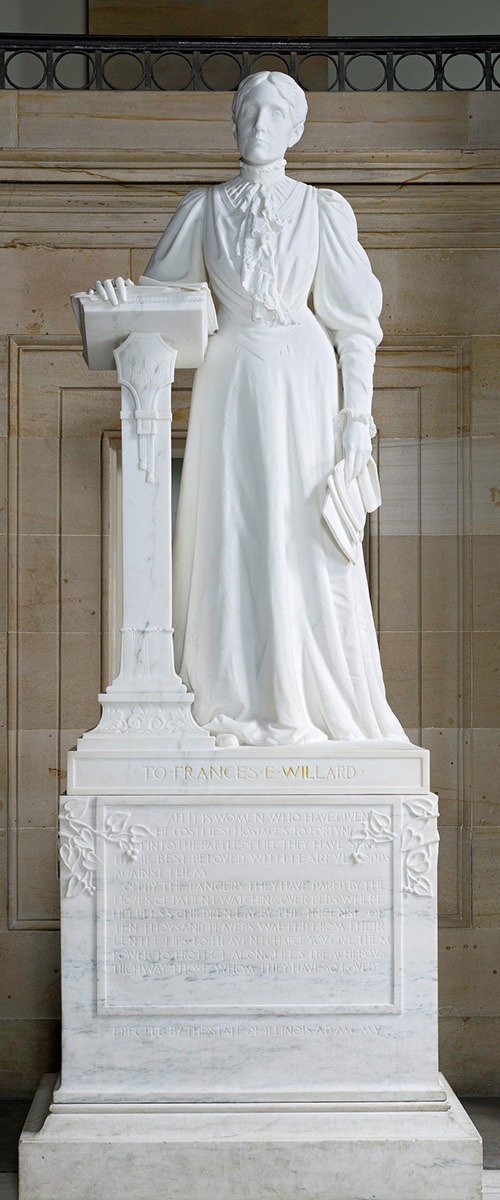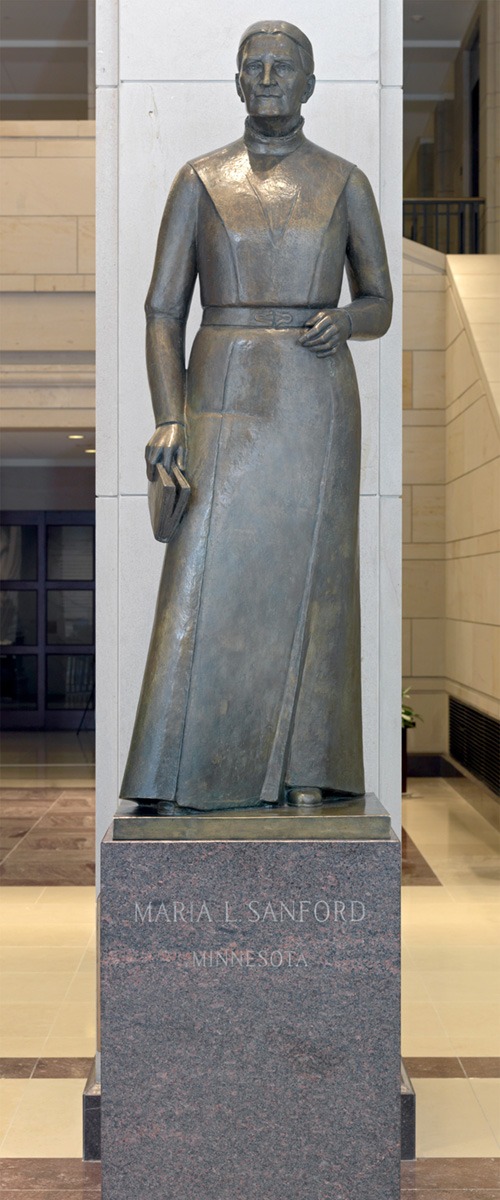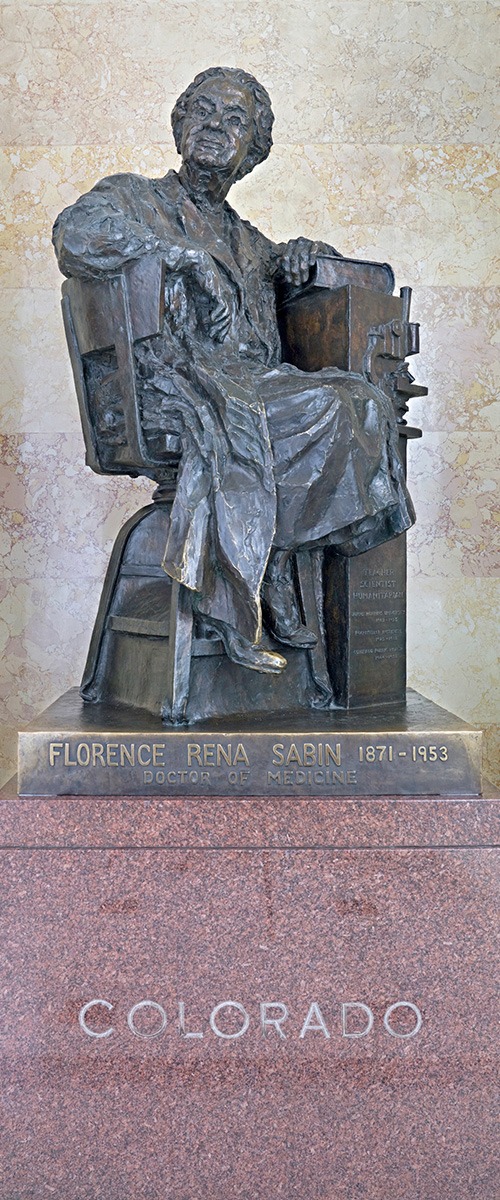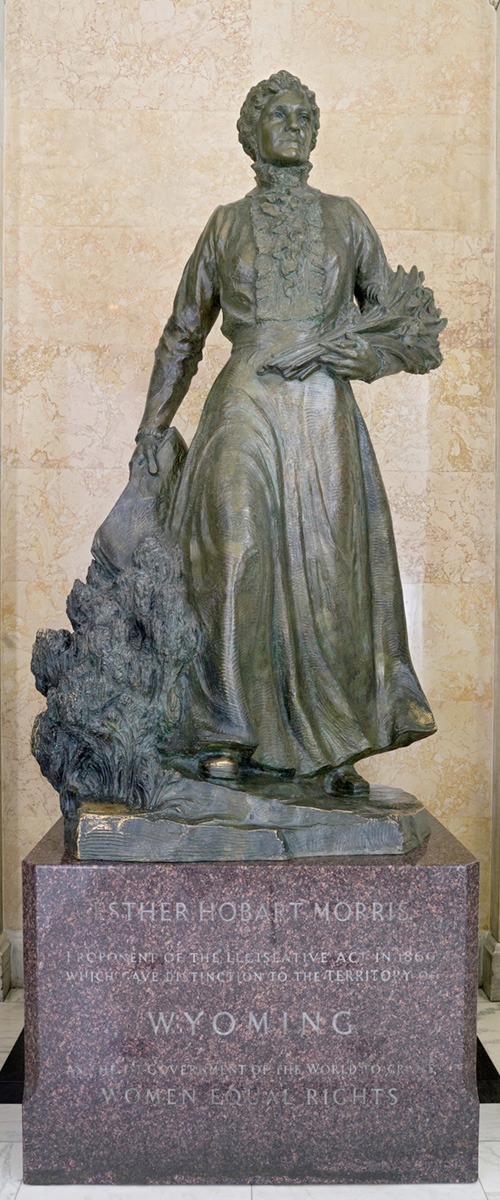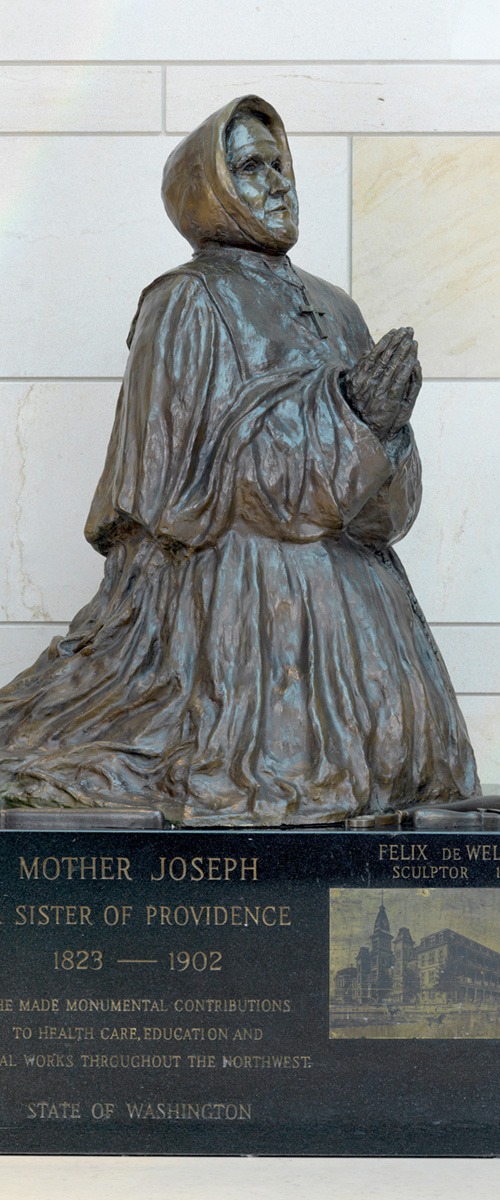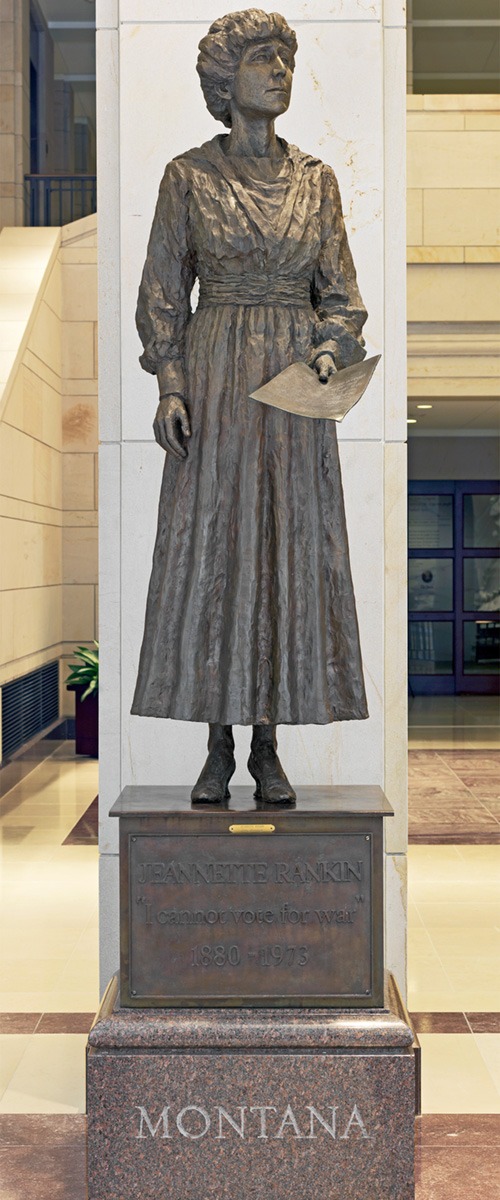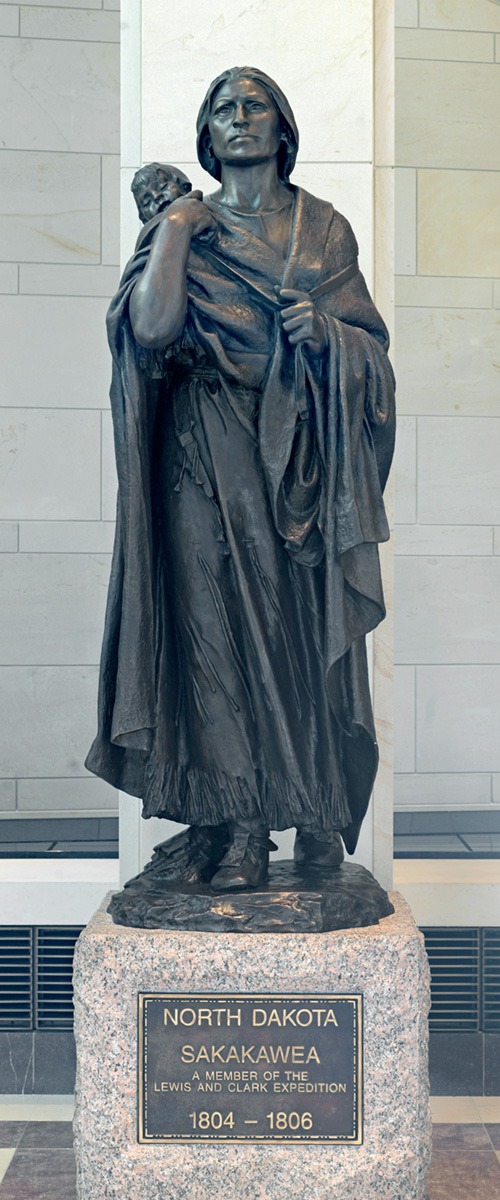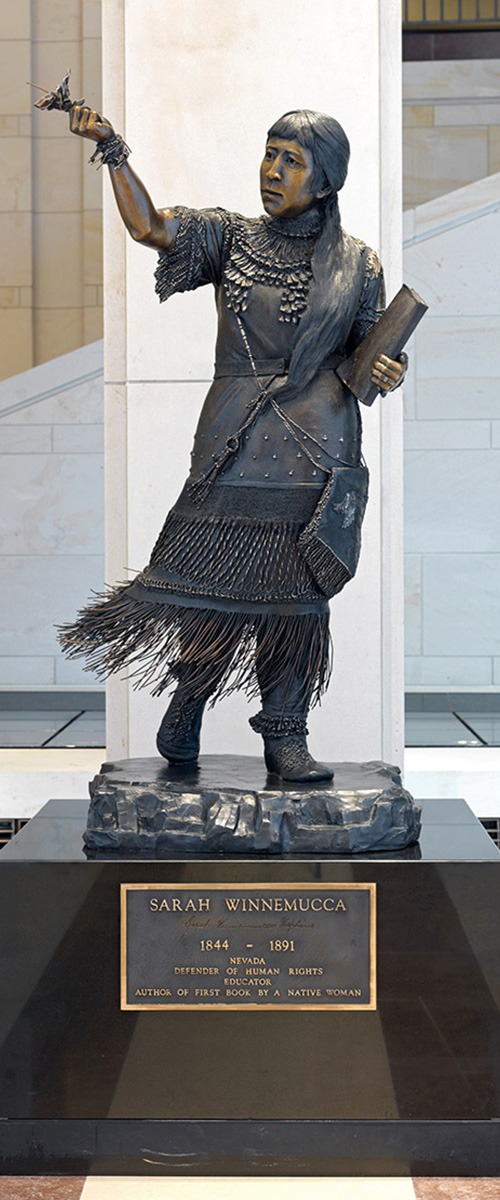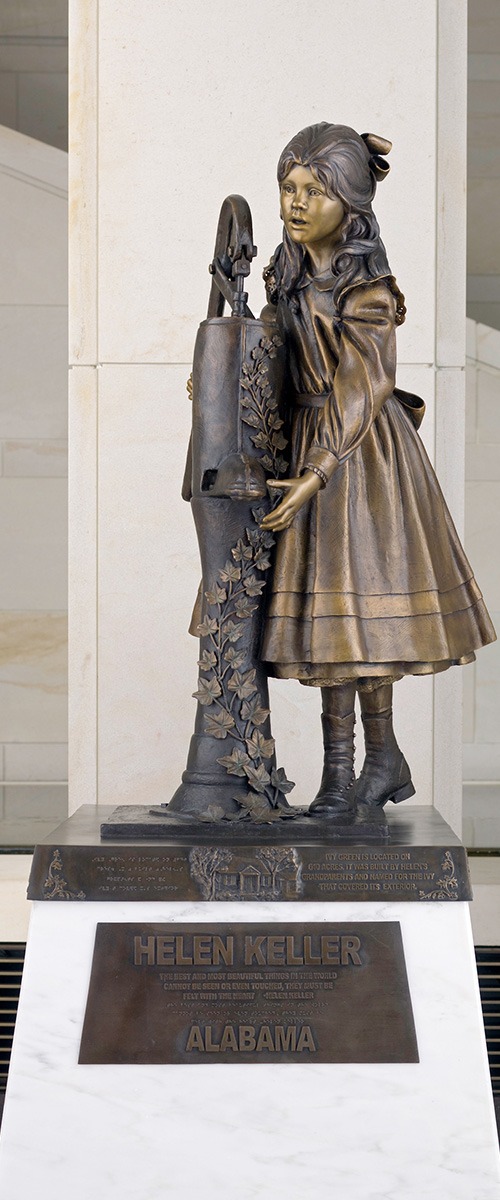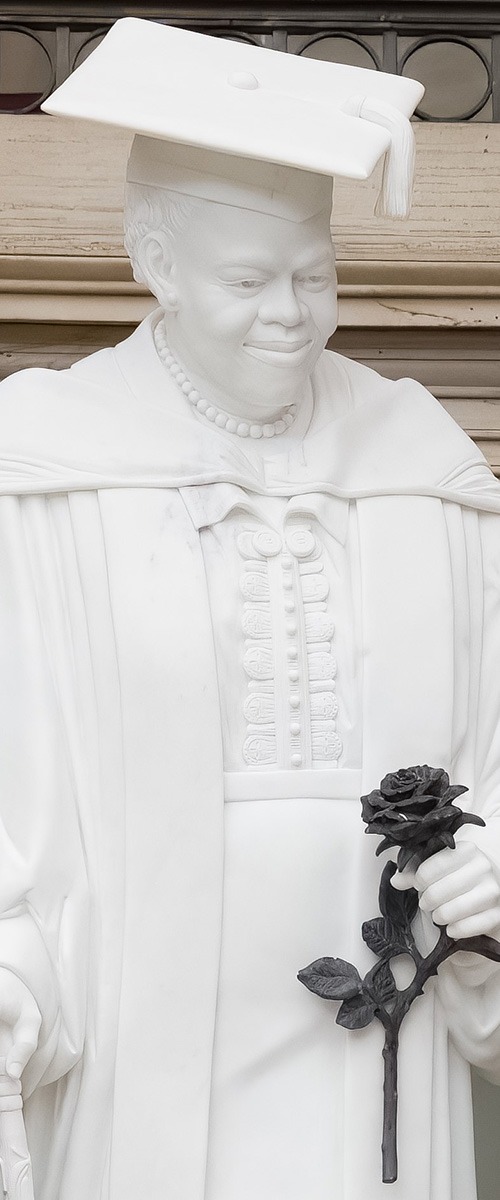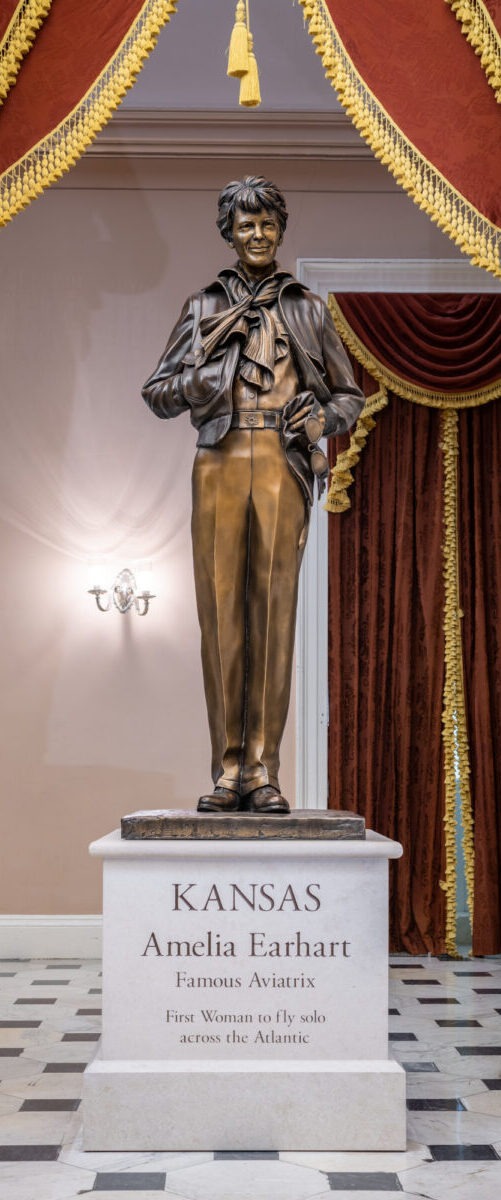Join us in our mission to educate, inspire, and encourage informed civic participation. By becoming an annual member, your support funds vital programs such as the ‘We the People’ Constitution Tour for DC students, free resources and lesson plans for teachers, and our series engaging virtual and in-person public history events. Together, we will preserve Congress’s history and empower citizens to influence the future of our democracy.
Program
Wednesday, March 29, 2023 | 6:00 pm – 8:00 pm
In celebration of Women’s History Month, the U.S. Capitol Historical Society welcomed members and supporters of the Society to a special program honoring the Women of National Statuary Hall.
- 6:00 pm – Reception began with some light refreshments
- Welcoming remarks from Jane L. Campbell, President/CEO, U.S. Capitol Historical Society
- Remarks from our special guest speakers
- Our Keynote speaker, Dr. Michele Cohen, Curator for the Architect of the Capitol, presented on the history and growth of women’s representation in the National Statuary Hall Collection
- Former U.S. Representative Cheri Bustos (D-IL 17) and USCHS guides led guests on a tour to view the 11 statues of women currently depicted in the Capitol Visitor Center, the Hall of Columns, and National Statuary Hall
Our Speakers
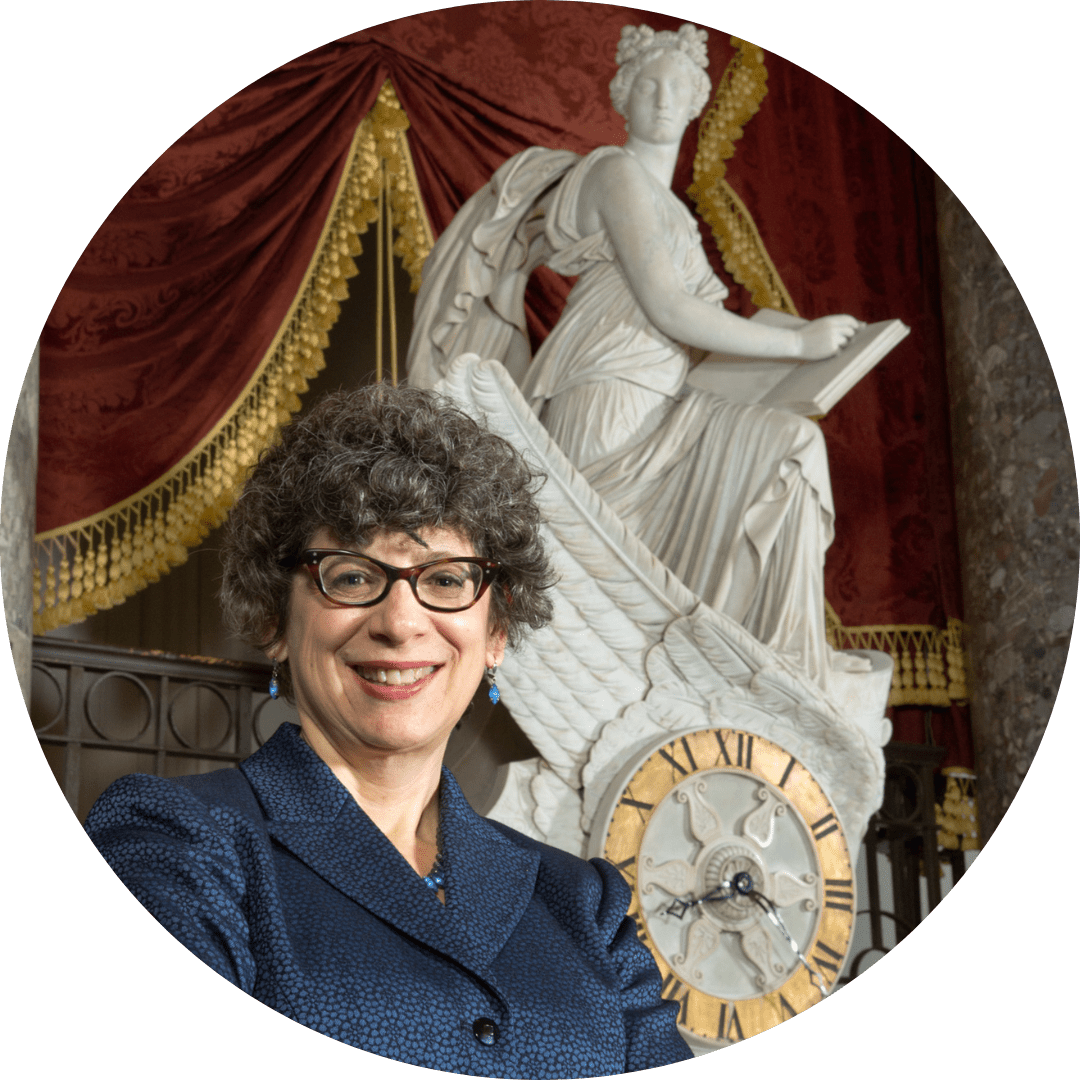 Dr. Michele Cohen has served as the Curator for the Architect of the Capitol since October 2015, where she oversees the Curator division and is responsible for the stewardship of heritage assets throughout the Capitol Campus. She earned her B.A. in Art History and English Literature from the State University of New York at Buffalo and a Ph.D. in Art History from the Graduate Center of the City University of New York.
Dr. Michele Cohen has served as the Curator for the Architect of the Capitol since October 2015, where she oversees the Curator division and is responsible for the stewardship of heritage assets throughout the Capitol Campus. She earned her B.A. in Art History and English Literature from the State University of New York at Buffalo and a Ph.D. in Art History from the Graduate Center of the City University of New York.
She began her career as the Director of the Sculpture Inventory for the Public Design Commission of the City of New York. From 1989 to 2009 she served as the Founding Director of New York City’s Public Art for Public Schools program, where she managed acquisitions, conservation of art, and a collection inventory for hundreds of school buildings. More recently, she has been a college professor, independent curator, and public art consultant.
Dr. Cohen’s publications include The Art Commission and Municipal Art Society Guide to Manhattan’s Outdoor Sculpture (Prentice Hall Press, 1988), Public Art for Public Schools (The Monacelli Press, 2009), chapters in The Decorated School: Essays on the Visual Culture of Schooling (Black Dog Publishing, 2013), Theresa Bernstein: A Century in Art (University of Nebraska Press, 2013) and a forthcoming chapter entitled “The Preservation Dilemma: Confronting Two Controversial Monuments from the United States Capitol,” for the anthology, Teachable Monuments (Bloomsbury, 2020).
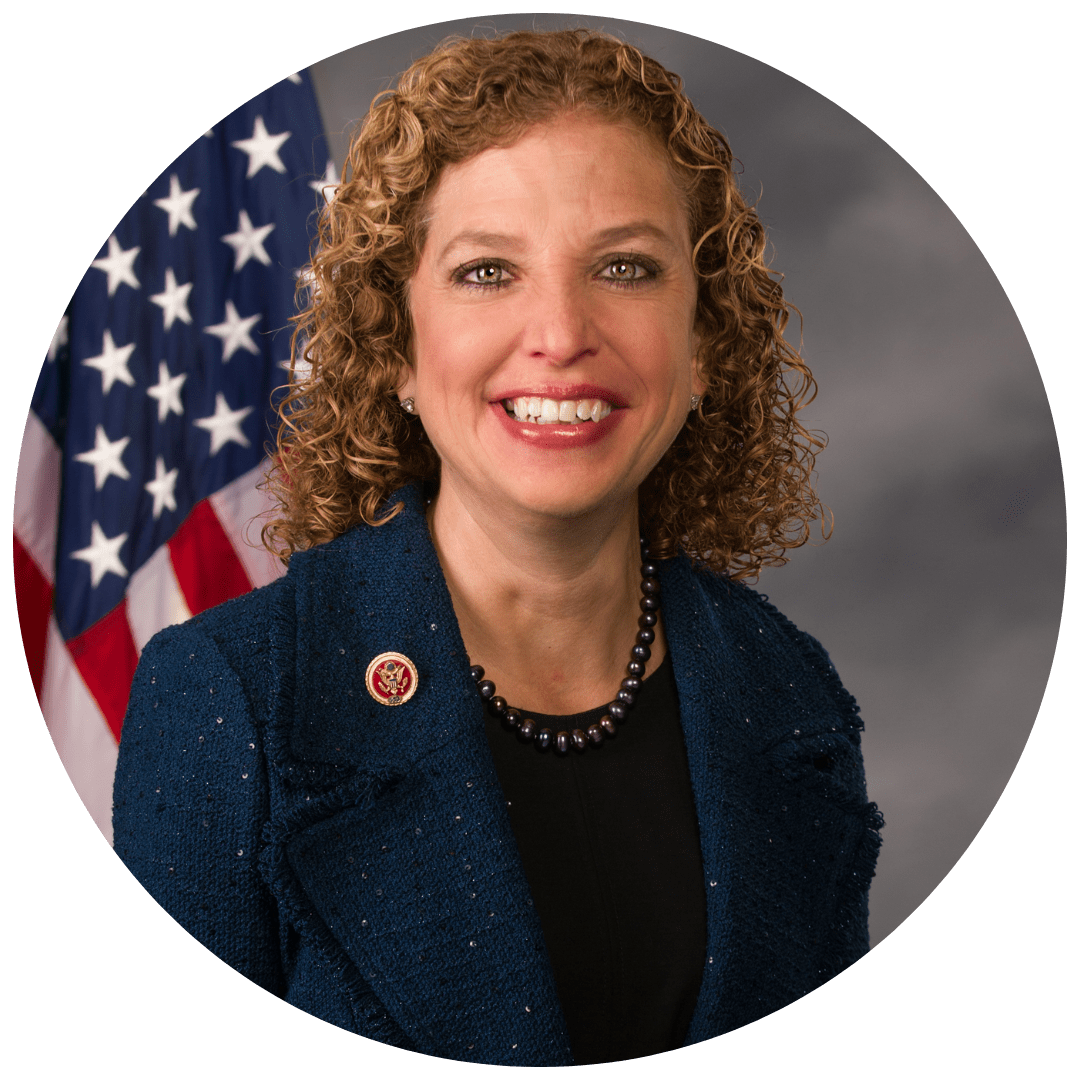
Congresswoman Debbie Wasserman Schultz has dedicated her public life to serving South Floridians and standing up for justice, equality, and opportunity wherever and whenever it is threatened. First sworn in to the U.S. House of Representatives in 2005, Congresswoman Wasserman Schultz previously served in the Florida House of Representatives and Florida Senate where she originally displayed her philosophy that there is “no task too small, and no goal too big.”
Known for vigorously defending her progressive values, Congresswoman Wasserman Schultz has also demonstrated her ability to pass meaningful legislation in a bipartisan fashion. She teamed up with former Republican Senator Arlen Specter to write a resolution – passed unanimously by both houses of Congress and signed by President Bush – to declare May as Jewish American Heritage Month in an effort to reduce anti-Semitism, hate, and bigotry.
As a mother of three, Congresswoman Wasserman Schultz authored the first federal pool and spa safety legislation – the Virginia Graeme Baker Pool and Spa Safety Act. Since its passage in 2007, there have been no drain entrapment deaths in any public pools in the United States. That same year, she sponsored the PROTECT Our Children Act, which created the largest law enforcement effort ever formed for the protection of our nation’s youth.
After announcing her own battle with breast cancer in 2009, Congresswoman Wasserman Schultz introduced the EARLY Act, signed by President Barack Obama in 2010, to increase breast cancer education and awareness. Congresswoman Wasserman Schultz also worked with Republican Congresswoman Renee Elmers to write and pass the PALS Act, which helps increase young women’s access to mammograms.
A leading advocate for women and girls, Congresswoman Wasserman Schultz introduced the Rape Survivor Child Custody Act to encourage more states to allow women to terminate the parental rights of a rapist, based on clear and convincing evidence. The bill was signed into law by President Obama in 2015.
Currently Congresswoman Wasserman Schultz serves as a Ranking Member on the Appropriations Committee. In the 117th Congress, she made history as the first-ever woman to Chair the Military Construction and Veterans Affairs Subcommittee. In addition, she serves on the Agriculture Subcommittee and the Energy and Water Subcommittee. In the 118th Congress, Congresswoman Wasserman Schultz holds a leadership role as a Co-Chair of the Steering and Policy Committee and serves on the Select Subcommittee on the Weaponization of the Federal Government.
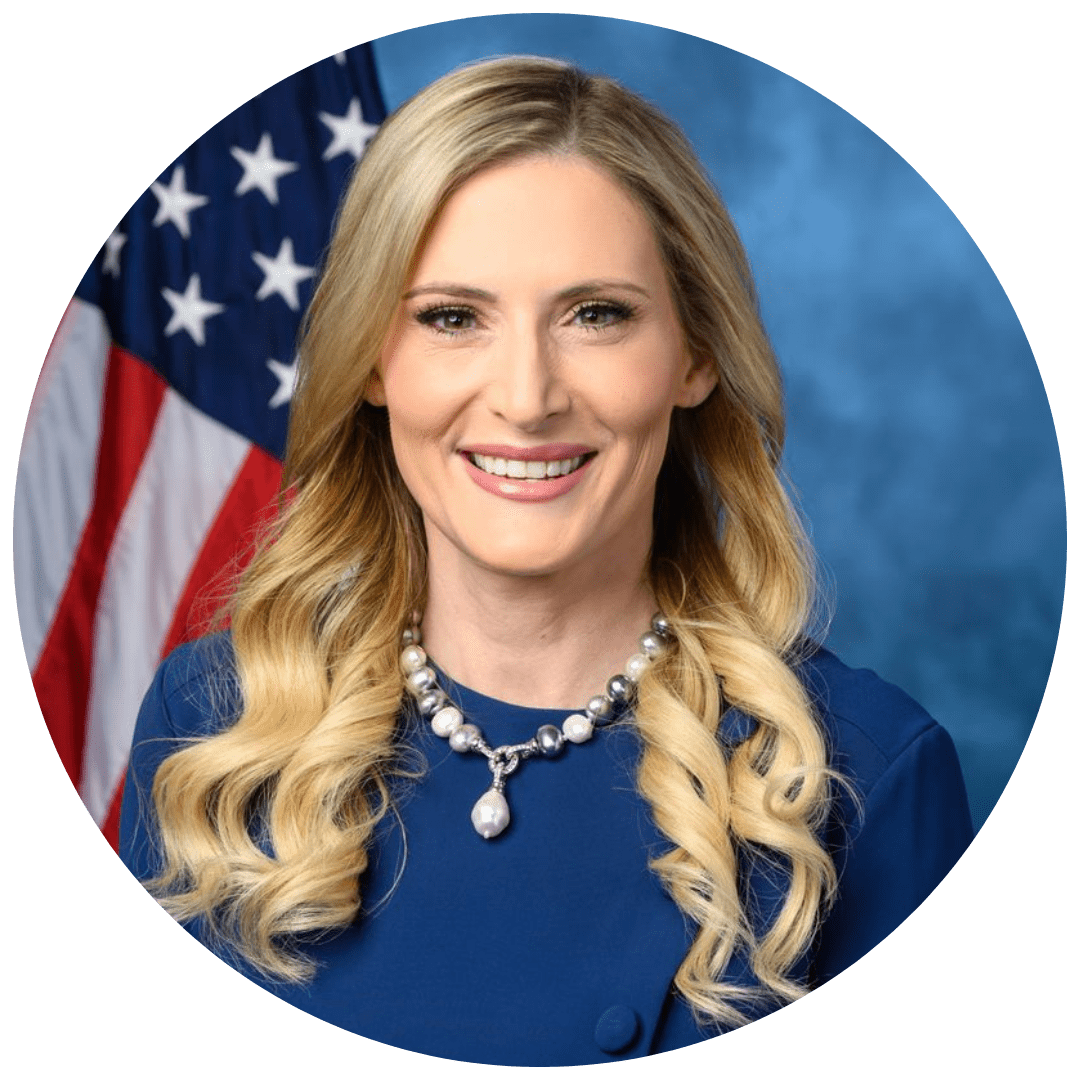 Congresswoman Laurel Lee was sworn into office in the United States House of Representatives on January 3, 2023. She proudly represents the 15th District of Florida which encompasses eastern Hillsborough county including Thonotosassa and Plant City, and part of Brandon, as well as parts of Pasco and Polk counties including Zephyrhills and west Lakeland.
Congresswoman Laurel Lee was sworn into office in the United States House of Representatives on January 3, 2023. She proudly represents the 15th District of Florida which encompasses eastern Hillsborough county including Thonotosassa and Plant City, and part of Brandon, as well as parts of Pasco and Polk counties including Zephyrhills and west Lakeland.
A wife, mother, and daughter of a two-star general in the United States Air Force, Laurel is committed to ensuring that the 15th District of Florida’s voice is represented in Congress. Laurel grew up in a military family, born at the Wright-Patterson Air Force Base in Ohio. As a life-long public servant, Laurel is focused on bringing common-sense solutions to Washington that will encourage job growth, limit government overreach, secure our borders, and bolster our economic and national security.
Prior to her election to the U.S. House of Representatives, Congresswoman Lee served as Florida’s 36th Secretary of State under the DeSantis Administration from January 2019 to May 2022. During her tenure, she worked to strengthen Florida’s elections infrastructure and cybersecurity defenses and ensured accurate and secure elections in the state. From 2013-2019, Congresswoman Lee served as a Circuit Court Judge in Florida’s Thirteenth Judicial Court in Hillsborough County, appointed by then-Governor Rick Scott. Before becoming a judge, she served as a federal prosecutor for the United States Attorney’s Office in the Middle District of Florida. As a federal prosecutor, she investigated and litigated False Claims Act cases and initiated and prosecuted a wide range of criminal offenses, including white-collar crime, violent crime, and offenses involving the sexual exploitation of children.
Congresswoman Lee serves on House Judiciary and Homeland Security Committees. Her main focus on these committees includes government accountability and transparency and protecting our nation from threats both abroad and at home. During her first week in office, Congresswoman Lee introduced the REINS Act to remove burdensome government regulations for Floridians. This legislation reins in harmful regulations, limits executive overreach, and protects all Americans from unelected and unchecked Washington bureaucrats.
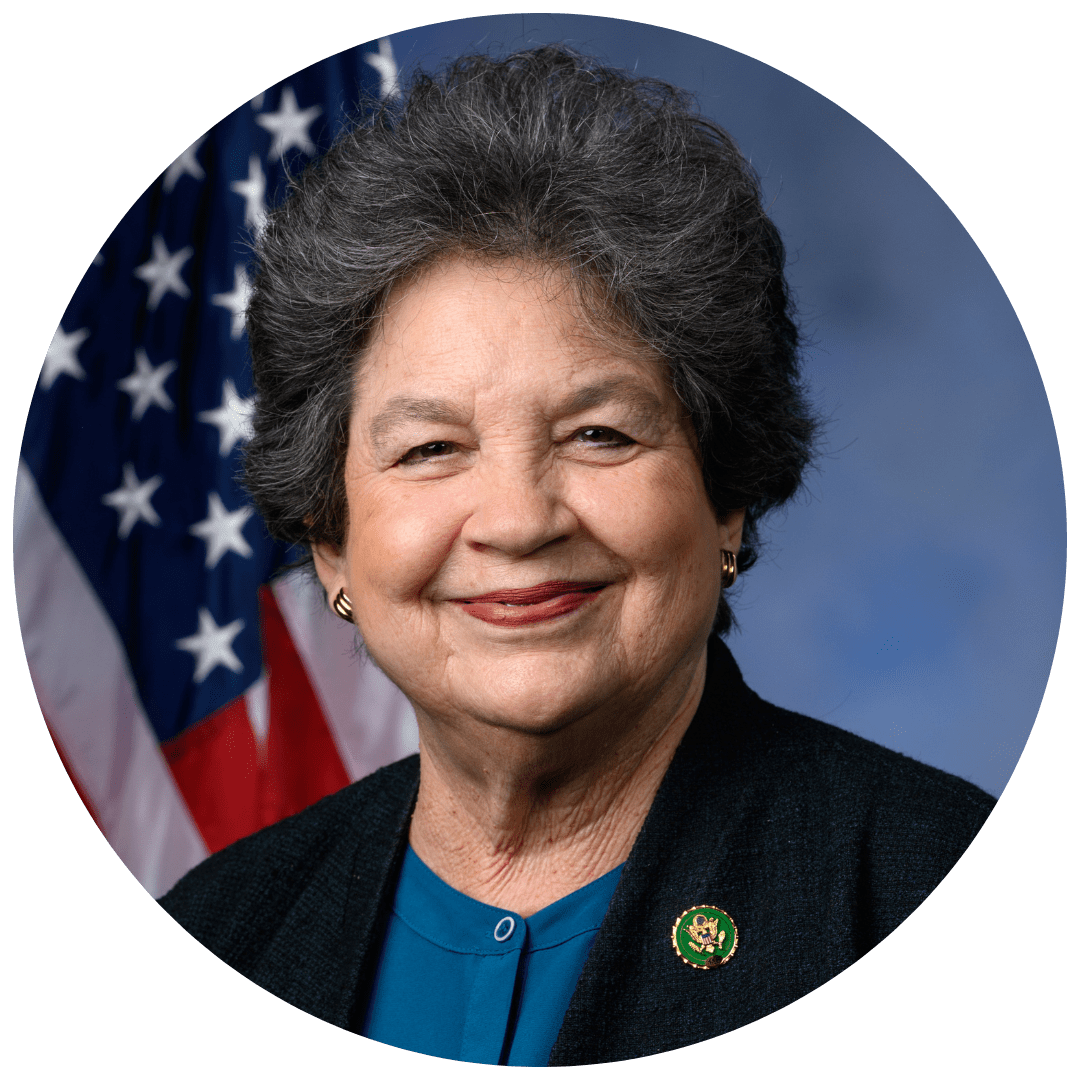
From her days as a working mom and now as she describes herself—a working grandmother, Congresswoman Lois Frankel has spent her life delivering positive change to her community as a civic leader, state legislator, mayor, and now Member of the United States House of Representatives. She currently sits on the House Appropriations Committee where she serves on the Labor, Health and Human Services, Education, and Related Agencies and the State, Foreign Operations, and Related Programs subcommittees.
A trailblazer in the Florida State Legislature, Congresswoman Frankel served as the first woman Democratic minority leader. She became a leading force to improve the economic condition of families and seniors, and to protect human rights and women’s reproductive freedom – fights she continues today in Congress as co-chair of the Democratic Women’s Caucus.
Prior to her election to Congress, Congresswoman Frankel served as Mayor of West Palm Beach, raising her city to a new vitality and earning a reputation as an innovative problem solver. On a personal note, Congresswoman Frankel is an avid abstract painter who is very proud of her son, and even more proud to be “Lolo” to her grandsons.

Serving the First Congressional District of Nevada, Congresswoman Dina Titus has built a strong record of achievement as both an educator and a public servant. As a professor, Congresswoman Titus taught American and Nevada government classes from 1979 through June 2011 at the University of Nevada, Las Vegas where she has professor emeritus status. A noted non-fiction writer, she is internationally known for her expertise in the history and policies related to nuclear power, weaponry, and waste as well as for her knowledge of the popular lore of “Atomic Culture.”
In 1988, Congresswoman Titus was elected to represent the people of District Seven in the Nevada State Senate, serving as the Democratic Minority Leader from 1993 to 2008. During her service in the Legislature, Congresswoman Titus was a champion for quality education and renewable energy development, and a strong advocate on behalf of Nevada’s children, seniors, and persons with disabilities.
Congresswoman Titus has received numerous awards from various state and local organizations, but one of her proudest moments came in 2006 with the dedication of the Dina Titus Estates, an innovative affordable housing complex for disabled Nevadans, named in recognition of Dina’s tireless advocacy.
Currently in her sixth term in the U.S. House of Representatives, Congresswoman Titus is the dean of Nevada’s Congressional delegation. She is a proud member of the House Committees on Transportation and Infrastructure, Foreign Affairs, and Homeland Security. In 2018, Congresswoman Titus was elected to become the Chair of a key Transportation and Infrastructure Subcommittee, where she works to help Nevada’s communities better respond to natural disasters, address the devastating impacts of climate change, and fight for infrastructure projects that will benefit the most vulnerable.
After helping the Las Vegas community recover from the deadliest shooting in modern American history, Congresswoman Titus has emerged as one of the leading voices in Congress for substantive action to reduce gun violence. She is a strong advocate for the DREAM Act and comprehensive immigration reform. An expert on matters of nuclear energy and waste, Congresswoman Titus leads the effort in Congress to oppose the revitalization of Yucca Mountain.
Congresswoman Titus grew up in the small town of Tifton, Georgia, with her parents, Joe and Betty Titus, and her younger sister, Dr. Rho Hudson, who is a professor of special education and founding faculty member of Nevada State College. Congresswoman Titus is a graduate of the College of William and Mary, holds a Master’s degree from the University of Georgia, and earned her Doctorate at Florida State University. Congresswoman Titus has been married to Professor Thomas C. Wright for over 35 years. Tom, a Latin American historian, received the prestigious UNLV Distinguished Professor award in 2008 and is the author of a number of award-winning books, most notably on political exile and human rights. John Wright Hall on campus is named after his father, pioneer professor at UNLV.
 Senator Cynthia Lummis was sworn into the United States Senate on January 3, 2021, becoming the first woman to serve as United States Senator from the great State of Wyoming.
Senator Cynthia Lummis was sworn into the United States Senate on January 3, 2021, becoming the first woman to serve as United States Senator from the great State of Wyoming.
Born on a cattle ranch in Laramie County, Senator Lummis has spent her entire career fighting for Wyoming families, communities, businesses and values. From the halls of the Wyoming House to the halls of the U.S. House, her time in public service has always been focused on advocating for Wyoming’s future.
First elected to the U.S. House in 2008, Senator Lummis quickly earned her reputation as a no-nonsense conservative and principled policymaker. She was a founding member of the House Freedom Caucus, a group consisting of the most unflinching conservative Members of the House of Representatives. She fought throughout her tenure in Congress to rein in spending and reduce the federal deficit, working with the bipartisan Committee for a Responsible Federal Budget and ultimately co-sponsoring several bipartisan budget proposals.
In the House of Representatives, Senator Lummis effectively elevated western issues, pushing through the first Interior and Environment (EPA) Appropriations bill to pass the House in seven years under her chairmanship. This marked a significant milestone for the Western Caucus and the rural communities across the West they represent. She also worked to keep public lands open to the public and available for multiple use. She successfully passed the National Forest System Trails Stewardship Act in 2016, a bipartisan effort led by Senator Lummisto maintain over 157,000 miles of trails within our national forests.
Senator Lummis is a dedicated champion of Wyoming’s mineral and energy resources. In Washington, she fought off attacks from the environmental left while advocating for market opportunities both at home and abroad. She is the proud godmother of the ANSAC Wyoming, a commercial shipping vessel transporting trona from the U.S. to Southeast Asia and is the recipient of the lifetime achievement award from the Washington Coal Club.
Prior to serving in the House of Representatives, Senator Lummis spent eight years as Wyoming State Treasurer and 14 years as a member of the Wyoming State House and Senate. She also worked as general counsel to Wyoming Governor Jim Geringer and Director of the Office of State Lands and Investments, as well as a law clerk at the Wyoming Supreme Court.

